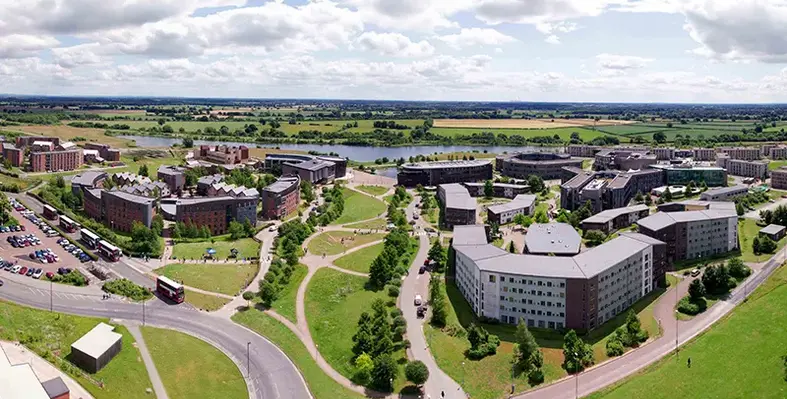 The University of York has unveiled a pioneering geothermal energy project, supported by £35 million in funding from the Department for Energy Security and Net Zero.
The University of York has unveiled a pioneering geothermal energy project, supported by £35 million in funding from the Department for Energy Security and Net Zero.
Designed to tap into the Earth’s natural heat, the initiative will help decarbonise the University’s operations while also providing rich opportunities for research and student learning.
Integrating innovation and research
Located above a site with exceptional geothermal potential, the University’s campus offers a unique setting to fuse advanced research with practical implementation. Drawing on its strengths in environmental science, engineering, and public policy, the University will lead a multi-disciplinary approach to exploring and applying geothermal energy solutions.
The first stage of the project, scheduled to span three years, will focus on developing a renewable heat source to power most of the campus buildings. This step is expected to make a major dent in the University’s fossil fuel consumption.
Strategic role in decarbonisation
This initial phase will also act as a springboard for academic exploration, enabling students and researchers to engage directly with geothermal technology in real-world applications. The project’s significance in advancing the UK’s net zero ambitions is underscored by its inclusion in the Public Sector Decarbonisation Scheme, overseen by Salix Finance on behalf of the Department for Energy Security and Net Zero.
Following the heat generation phase, the project will enter a six-to-seven-year plan to explore possibilities for on-campus electricity production and increased heat capacity. The broader vision includes expanding these benefits to the local York community, establishing a renewable energy hub that enhances the city’s resilience to climate change.
The initiative is a flagship component of the University’s Sustainability Plan 2030, which aims for a 78% reduction in fossil fuel use. It will significantly cut emissions and contribute to the city’s wider climate targets.
Community-driven and educational impact
Professor Charlie Jeffery, Vice-Chancellor of the University of York, said, “This geothermal project is more than just a sustainable energy initiative; it’s a living laboratory that will drive research, educate our students and benefit our community. The project’s location enables us to blend academic curiosity with practical application, providing learning opportunities for our students, all whilst contributing significantly to York’s Net Zero ambitions. The support from the Government is a vital catalyst for this transformative endeavour.”
Ian Rodger, director of public sector decarbonisation at Salix, added, “This is an exciting and ambitious project which will significantly reduce the University’s carbon emissions and has the potential to be of even greater benefit for the city of York. This geothermal project will be an example of sustainable energy innovation as well as showing us how education, research and community can come together to tackle climate change.”
With assessment work already completed, the project now moves forward to planning and regulatory approval stages. The University’s geothermal programme is poised to become a national model for how education, sustainability, and community development can work hand in hand to confront climate change.
